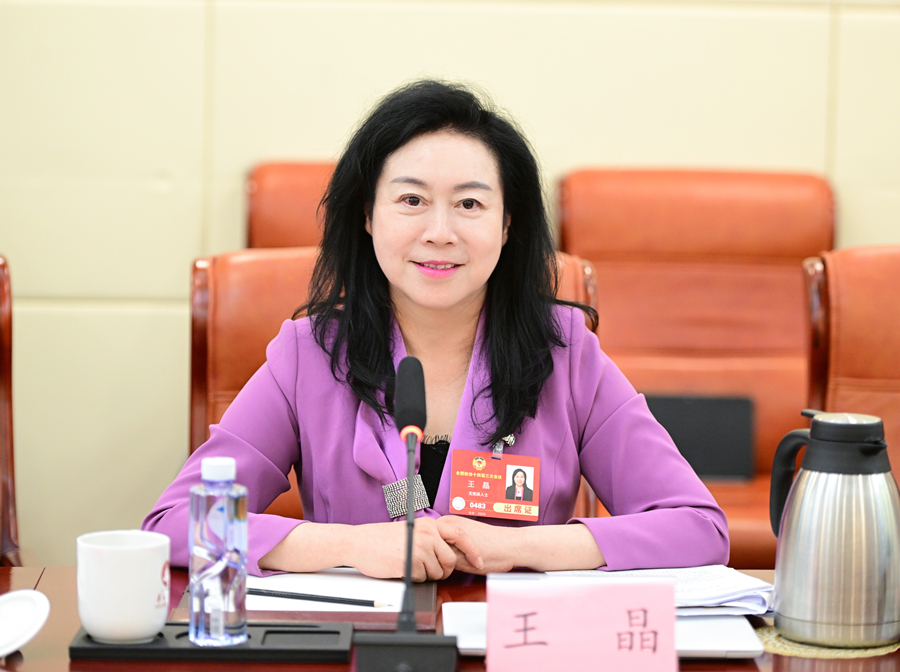
 0 Comment(s)
0 Comment(s) Print
Print E-mail China.org.cn, March 10, 2025
E-mail China.org.cn, March 10, 2025

Wang Jing, a member of the 14th National Committee of the Chinese People's Political Consultative Conference (CPPCC), poses for a photo during the third session of the 14th CPPCC National Committee in Beijing, March 8, 2025. [Photo provided to China.org.cn]
A national political advisor has proposed measures to accelerate the high-quality development of the marine economy.
Wang Jing, a member of the 14th National Committee of the Chinese People's Political Consultative Conference (CPPCC) and CEO of Newland Group, noted that China's land-based economy has achieved remarkable success since the reform and opening-up. However, resource and environmental constraints are creating bottlenecks for continued land-based economic growth.
"Oceans and seas, as strategic resource reservoirs, offer new momentum for China's sustainable development," Wang told China.org.cn on March 8, while attending the third session of the 14th CPPCC National Committee. "With breakthroughs in next-generation technologies such as artificial intelligence, marine robotics and satellite communications, the high-quality development of the marine economy has become the optimal choice to overcome resource bottlenecks, expand strategic space and chart a new development course."
Wang proposed a detailed plan that includes integrating a smart ocean initiative into the new infrastructure framework and establishing an industrial investment fund.
She called for the creation of a national marine intelligent technology innovation system, which would feature a dedicated laboratory for marine AI models.
Wang urged for advancements in key technologies such as marine environment prediction, AI resource exploration and intelligent navigation. She proposed developing a comprehensive marine database that combines satellite, robotics and buoy data to create the world's largest Chinese marine corpus.
Her plan includes building a marine robotics innovation center and establishing deep-sea robotics bases in key cities to produce unmanned surface vehicles and autonomous underwater vehicles equipped with satellite communication capabilities. These could be used for industrial applications like submarine cable inspection and deep-sea mining.
Wang recommended building satellite-based marine infrastructure, including a hybrid 5G and satellite network and a marine monitoring satellite constellation. She proposed testing low-orbit satellite internet to provide high-speed broadband for offshore fisheries and wind farms, allowing research vessels to transmit large amounts of data daily. Her plan also includes developing low-cost satellite Internet of Things terminals for fishing vessels and creating a marine emergency communication system.
Additionally, Wang advocated for a marine digital twin platform that integrates satellite, sonar and AI technologies to build a 3D maritime domain model and establish a big data center.
Wang outlined proposals to advance smart ocean development, including creating an intelligent marine carbon trading platform powered by blockchain and satellite monitoring. The platform would track blue carbon ecosystems such as mangroves and seagrass beds. She also advocated for establishing a national marine carbon trading center.
Moreover, Wang suggested fostering a smart marine industry cluster by creating a marine metaverse innovation base for augmented reality and virtual reality offshore training and digital fishery management. She proposed transforming traditional shipyards into "smart shipyards" using digital twin-based lifecycle systems.